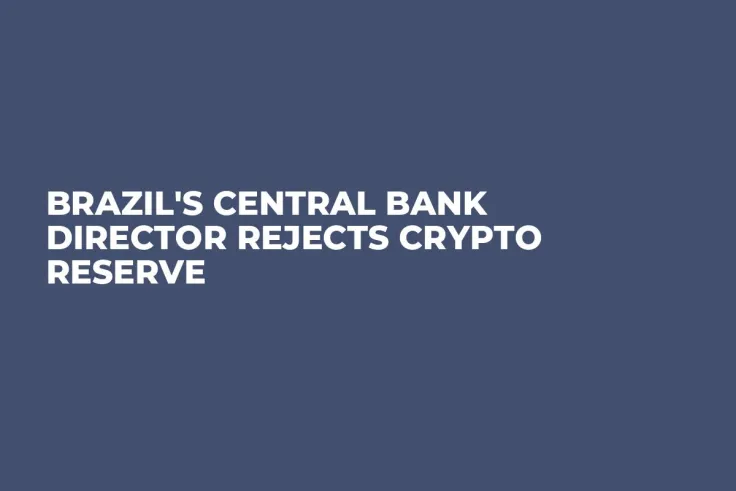Earlier this Monday, Nilton David, the director of monetary policy at the central bank of Brazil, rejected the idea of diversifying reserve assets with cryptocurrencies. Such a move would be inappropriate, according to David.
This comes after the U.S. recently established a Bitcoin reserve. However, other major economies are not in a rush to follow suit, with the likes of Sweden and Japan recently pouring cold water on the idea.
Brazilian lawmaker Eros Biondini recently introduced a bill to create a strategic Bitcoin reserve. If approved, the legislation would allow allocating up to 5% of the country's international reserves to the leading cryptocurrency. The reserve would be guarded with the help of advanced cybersecurity measures and involve AI-based monitoring. The bill argues that the reserve could mitigate economic risks while simultaneously positioning Brazil as a global financial leader and attracting more investment. It remains to be seen whether the legislative effort will be able to gain any traction.
Pedro Giocondo Guerra, a prominent Lula administration official, enthusiastically endorsed the idea of establishing a Bitcoin reserve last week, describing the largest cryptocurrency as "digital gold." He argued that it would be important for the country's prosperity.
In other news, the National Monetary Council (CMN), the highest financial regulatory entity in the country, also banned some pension funds from getting any exposure to Bitcoin due to the risks associated with the mercurial cryptocurrency.



 Dan Burgin
Dan Burgin Vladislav Sopov
Vladislav Sopov